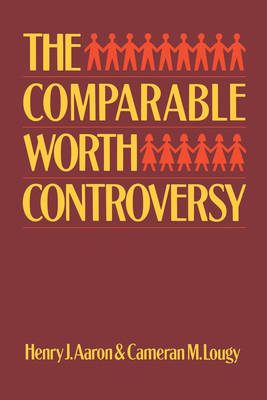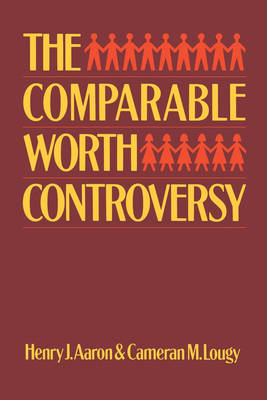
- Retrait gratuit dans votre magasin Club
- 7.000.000 titres dans notre catalogue
- Payer en toute sécurité
- Toujours un magasin près de chez vous
- Retrait gratuit dans votre magasin Club
- 7.000.0000 titres dans notre catalogue
- Payer en toute sécurité
- Toujours un magasin près de chez vous
Description
The well-documented gap between men's and women's earnings has aroused intense debate over the concept of comparable worth, that is, equal pay for work judged to be of equal value. Government, business, labor unions, and the courts have been forced to consider whether workers in dissimilar jobs of comparable worth--measured by such criteria as working conditions, degree of difficulty, and knowledge and responsibility required--should receive equal wages, and how wage adjustments can be implemented.The issue has provoked inflated rhetoric, litigation, and considerable confusion.
In this concise study, Henry J. Aaron and Cameran M. Lougy review the conditions that have sparked the debate and unravel the implications of comparable worth for employers in public and private sectors, for labor union agendas and employer-employee negotiations, and for the administrative and and judicial burdens of the nation's courts. The authors conclude with general guidelines for implementing wage adjustments in ways that would not seriously disrupt society or have a major impact on overall economic efficiency.
Spécifications
Parties prenantes
- Auteur(s) :
- Editeur:
Contenu
- Nombre de pages :
- 68
- Langue:
- Anglais
- Collection :
Caractéristiques
- EAN:
- 9780815700418
- Date de parution :
- 01-10-86
- Format:
- Livre broché
- Format numérique:
- Trade paperback (VS)
- Dimensions :
- 152 mm x 229 mm
- Poids :
- 113 g

Les avis
Nous publions uniquement les avis qui respectent les conditions requises. Consultez nos conditions pour les avis.






